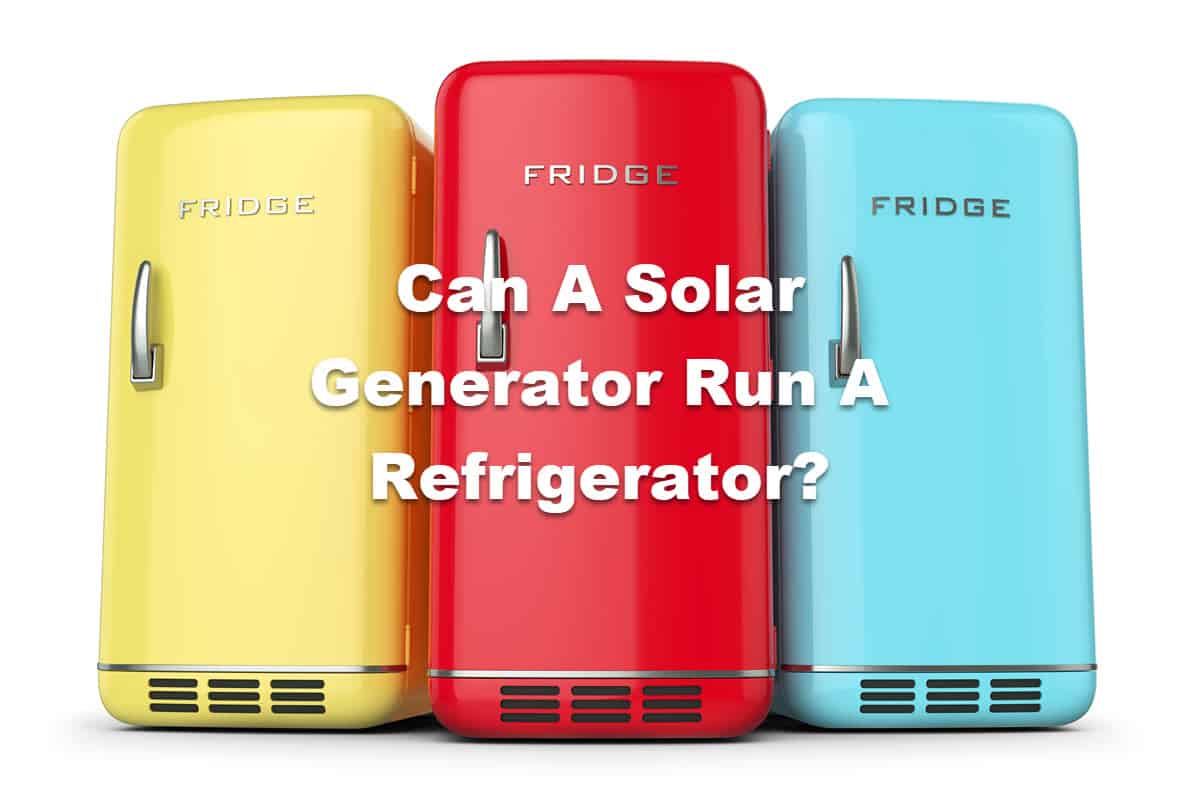In the quest for reliable backup power and sustainable energy solutions, many homeowners wonder if a solar generator can effectively power their refrigerator. The answer is yes – with proper sizing and setup, solar generators can reliably keep your food cold during power outages or off-grid living situations.
Understanding Refrigerator Power Requirements
Refrigerators vary significantly in their power consumption based on size, age, and efficiency ratings. A modern Energy Star-certified refrigerator typically uses between 300-400 watts, while older or larger models might consume 600-800 watts. Mini fridges are the most efficient, drawing only 50-100 watts.
However, it’s crucial to understand that refrigerators don’t draw power continuously. They operate in cycles, running their compressors periodically to maintain temperature. This cycling behavior means that while a refrigerator might be rated at 400 watts, it only draws that power during active cooling cycles.
Calculating Your Needs
To properly size a solar generator for your refrigerator, you’ll need to determine both running watts and surge watts. Here’s how to calculate your needs:
- Find your refrigerator’s voltage and amperage ratings (usually listed on a label inside the unit)
- Multiply volts × amps to get running watts
- Account for surge power (typically 2-3 times running watts)
- Calculate daily power consumption based on duty cycle
For example, a refrigerator rated at 120V and 3.5A requires 420 watts while running. Understanding how a solar generator works will help you match these requirements to the right unit.
Solar Generator Size Requirements
The size of solar generator needed depends on how long you need to power your refrigerator without recharging. Modern solar generators like Bluetti power station generators offer various capacity options to match different needs.
For reliable refrigerator operation, consider these general guidelines:
- A 500Wh generator can run a typical refrigerator for 6-8 hours.
- 1000Wh units provide 15-17 hours of operation.
- 2000Wh or larger units can power a refrigerator for 30+ hours.
For those interested in complete energy independence, our guide to the best solar generator for off-grid living provides detailed recommendations.
Important Features to Consider
When selecting a solar generator for refrigerator use, look for these essential features:
Power Output Capability: Ensure the generator can handle both running watts and surge requirements.
Battery Capacity: Choose a capacity that matches your backup power duration needs.
Charging Options: Multiple charging methods (solar, AC, car) provide flexibility.
Monitoring Systems: Clear displays showing power consumption and battery levels help manage usage.
Safety Features: Look for overload protection, temperature monitoring, and short circuit prevention.
Running Multiple Appliances
Most households need to power more than just a refrigerator during outages. When sizing your solar generator, account for additional devices you’ll need to run simultaneously. Common additions might include:
- LED lighting (10-20 watts per bulb).
- Mobile device charging (10-20 watts).
- Small appliances (100-500 watts).
- Medical devices (varies by device).
Long-term Operation Considerations
For extended use or off-grid living, consider these factors:
- Solar Panel Capacity: Ensure your solar panels can recharge the generator during daylight hours
- Weather Patterns: Account for cloudy days and seasonal variations
- Battery Life: Consider the long-term durability of the battery system
- Maintenance Requirements: Regular maintenance ensures reliable operation
Conclusion
A properly sized solar generator can power your refrigerator and other essential appliances effectively. The key is accurately calculating your power needs and choosing a unit with adequate capacity and features. Whether preparing for emergencies or moving toward energy independence, understanding these requirements will help you make an informed decision.
When selecting your solar generator, consider both immediate and long-term power needs. With proper planning and sizing, you can ensure reliable power for your refrigerator and other essential appliances whenever you need it.

Leave a Reply